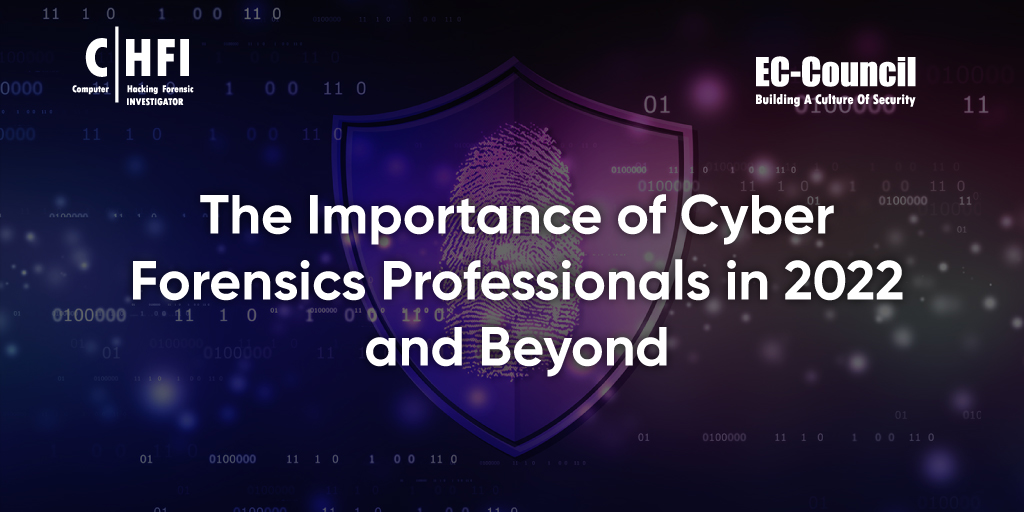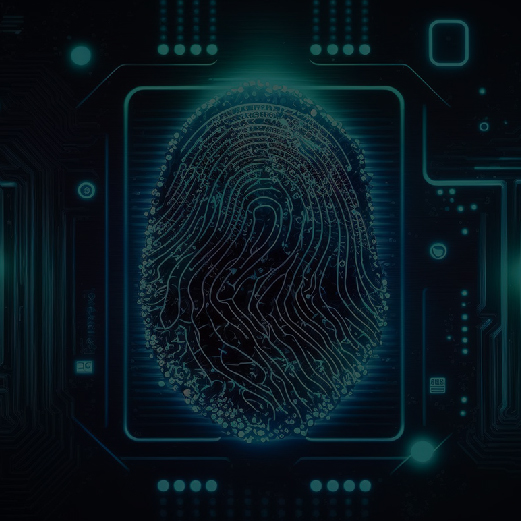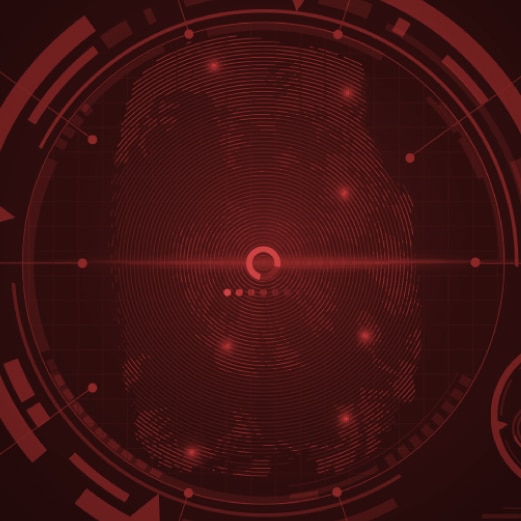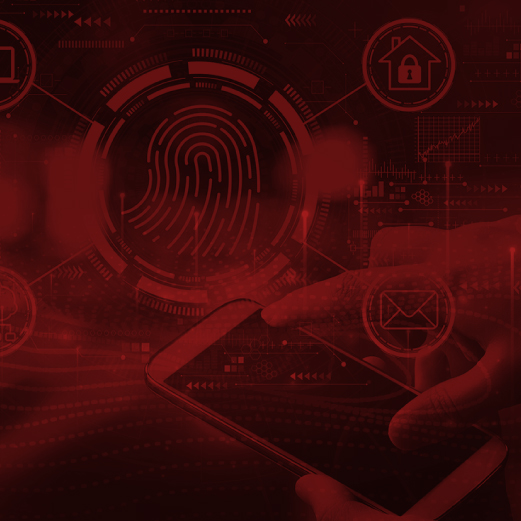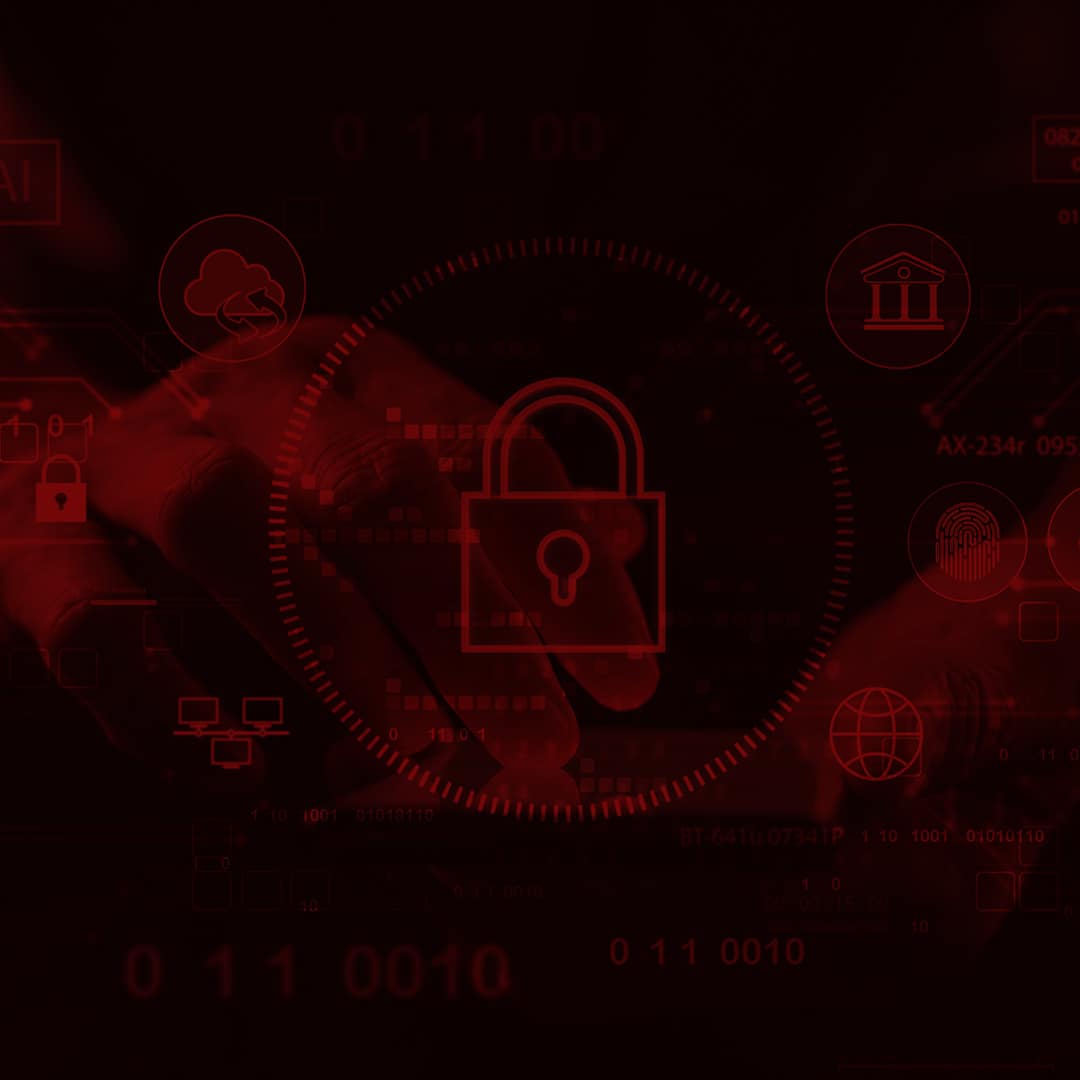Cyber forensics professionals are investigators that respond to cybercrime and serious data breaches. Organizations need cyber forensics to answer vital questions such as – what happened, how it happened, how bad it is, and who’s responsible.
A cyber forensic expert uses sophisticated techniques to get to the bottom of each incident. Their investigation is meticulous, focusing on creating a reliable evidence chain. The evidence they produce is admissible in court, which can help settle lawsuits—and bring cybercriminals to justice.
This kind of investigation is essential at a time when cybercrime is skyrocketing. The FBI’s digital unit investigated $6.9 billion in cyber fraud in 2021—a 500% increase in just five years (Federal Bureau of Investigation, 2021). The threat is real. That’s why there’s a growing demand for skilled, certified cyber forensics professionals.
What is Cyber Forensics?
Cyber forensics is the discipline of studying digital sources to find reliable evidence of serious data security incidents. A cyber forensics investigation involves looking for clues from sources such as physical devices, network logs, databases, and cloud services. The investigator will attempt to restore deleted data and may even search the dark web for information.
Data integrity is the most crucial part of cyber forensics. If there is any data loss or contamination, it could undermine the whole investigation. That’s why digital forensics analysts always follow a strict process:
- Identification: Find all data sources that might have relevant information.
- Preservation: Secure the data to prevent erasure, tampering, or contamination.
- Analysis: Put all the data together and establish what happened.
- Documentation: Build a detailed timeline of all known events and actors involved in the incident.
- Presentation: Summarize the findings in an appropriate format.
Cyber forensics is a vitally important job, and not only in the fight against cybercrime. Digital evidence now plays a role in over 90% of all criminal trials (Yawn, 2015). Justice depends on having access to digital evidence that is reliable, objective, and accurate.
Why is There a Growing Demand for Certified Cyber Forensics?
Businesses are currently fighting for their lives against the constant threat of cyberattacks. Data breaches are expensive, costing up to $180 per individual record compromised (IBM, 2021). A data breach can also expose a business to sabotage, espionage, or extortion.
Responding to security incidents isn’t easy. It can take up to 287 days—over nine months—to identify and repair a data breach (IBM, 2021). During that time, the organization will lose vital data that could help track down the criminals responsible.
To fight back, many companies are hiring extra in-house computer forensics experts or working with forensic cybersecurity consultants. These experts are helping to deal with a wave of new threats, including:
- Rapidly changing technology: Sudden changes in information technology infrastructure can create new risks. For example, the switch to remote work during Covid led to a 220% increase in phishing attacks (Warburton, 2021).
- IoT vulnerabilities: There are over 13 billion Internet of Things (IoT) devices online (Statista, 2021). Not all these devices are secure, making them targets for hackers. These devices can also serve as hosting grounds for botnet attacks.
- Cryptocurrency: Cryptocurrency is hard to trace. That makes things much easier for ransomware attackers and much harder for cyber forensics analysts. $14 billion of criminal activity involved cryptocurrency in 2021, up 79% in 2020. (Chavez-Dreyfuss, 2022)
- Accessible hacking tools: Wannabe cybercriminals can now pay to access sophisticated hacking tools. This ease of access means more frequent attacks and more pressure on cyber defenses.
- Anti-forensics techniques: Criminals keep finding new ways to cover their tracks. Evolving anti-forensics techniques can make detecting and investigating a cyber-attack even harder.
The average business spends 10% of its annual IT budget on cybersecurity (Deloitte, 2020), most of which goes on prevention. But, when their defenses fail, those companies need cyber forensic professionals to investigate and find answers—fast.
Is Cyber Forensics a Promising Career?
As long as there is cybercrime, there will be a demand for cyber forensic analysts.
Full-time salaries for digital forensics professionals average at around $74,902 (Payscale, 2022). You can also work as a private consultant, which would mean billing clients according to your hourly rates.
You will need strong technical training and IT knowledge to succeed as a cyber forensic professional. You’ll also need the right qualifications (see next section) and experience in cybersecurity.
Most of all, you will need the right personal qualities, such as:
- Curiosity: You’ll need an insatiable desire to find the truth. A cyber forensic professional will ask questions, chase every lead, and explore every possible data source in the search for clues.
- Attention to detail: You’ll need to be able to spot patterns and clues in the smallest traces of data. You’ll also need to be painstaking in following the correct process.
- Continuous learning: Hacking techniques are constantly evolving—and so are anti-forensics strategies. You’ll need a voracious appetite for learning about the latest trends.
- Strong communication: You may need to present your evidence to non-technical people. Can you explain your findings to executives, law enforcement, or even a jury?
Cyber forensics can be a steppingstone to a senior career in cybersecurity. This path can lead to jobs like security architect or Chief Information Security Officer (CISO).
How to Become a Certified Cyber Forensics Professional
If you think cyber forensics is the right choice for you, then here’s the good news: there’s never been a better time to start.
Employers need cybersecurity people at all levels, from entry-level cyber forensics positions to senior consultants. These positions allow you to get hands-on experience and to see how cyber forensics works in the real world.
Some training options can help make you eligible to apply for vacancies. Here are a few cyber forensic courses to consider:
- Beginner: Got an IT background and are looking to pivot to security? Consider a security basics course. The Certified Network Defender program is an excellent place to start. You will learn about entry-level cyber forensics techniques, including risk anticipation, threat assessment, and endpoint security.
- Intermediate: What if you have security experience and want to develop your skills? A qualification such as Cyber Threat Intelligence Training gives an in-depth guide to threat analysis. You’ll also learn some of the data-gathering techniques involved in an investigation.
- Cyber forensics professional: When you’re ready for a serious career in cyber forensics, you can enroll in a program such as Computer Hacking Forensic Investigator (C|HFI) program. Here, you’ll gain in-depth knowledge about conducting a cyber forensics investigation on any platform and methods for counteracting anti-forensics techniques.
The C|HFI program from EC-Council is the only comprehensive, ANSI accredited, and lab-focused program in the market that gives vendor-neutral training in cyber forensics. In addition, it is the only program covering IoT Forensics and Darkweb Forensics. Learn about this program and how to start your certified cyber forensics professional career.
References
Bernard, J. Nicholson, M. (2020, July 4). Reshaping the cybersecurity landscape. Deloitte. https://www2.deloitte.com/us/en/insights/industry/financial-services/cybersecurity-maturity-financial-institutions-cyber-risk.html
Chavez-Dreyfuss, G. (2022, January 6). Cryptocurrency crime in 2021 hit an all-time high in value. Reuters. https://www.reuters.com/markets/us/cryptocurrency-crime-2021-hits-all-time-high-value-chainalysis-2022-01-06/
Federal Bureau of Investigation. (2021) Internet Crime Report 2021. https://www.ic3.gov/Media/PDF/AnnualReport/2021_IC3Report.pdf
IBM Security. (2021, July 28). Cost of a Data Breach Report 2022. https://www.ibm.com/security/data-breach
Payscale. (2022). Average Forensic Computer Analyst Salary. https://www.payscale.com/research/US/Job=Forensic_Computer_Analyst/Salary
Statista. (2022) Number of Internet of Things (IoT) connected devices worldwide from 2019 to 2030. https://www.statista.com/statistics/1183457/iot-connected-devices-worldwide/
Warburton, D. (2021). Phishing Attacks Soar 220% During COVID-19 Peak as Cybercriminal Opportunism Intensifies. F5. https://www.f5.com/company/news/features/phishing-attacks-soar-220–during-covid-19-peak-as-cybercriminal
Yawn, A.J. (2015). In crime investigations, digital evidence ‘outweighs’ DNA. Montgomery Advertiser. https://eu.montgomeryadvertiser.com/story/news/2015/09/30/digital-evidence-outweighs-dna/73082266/


